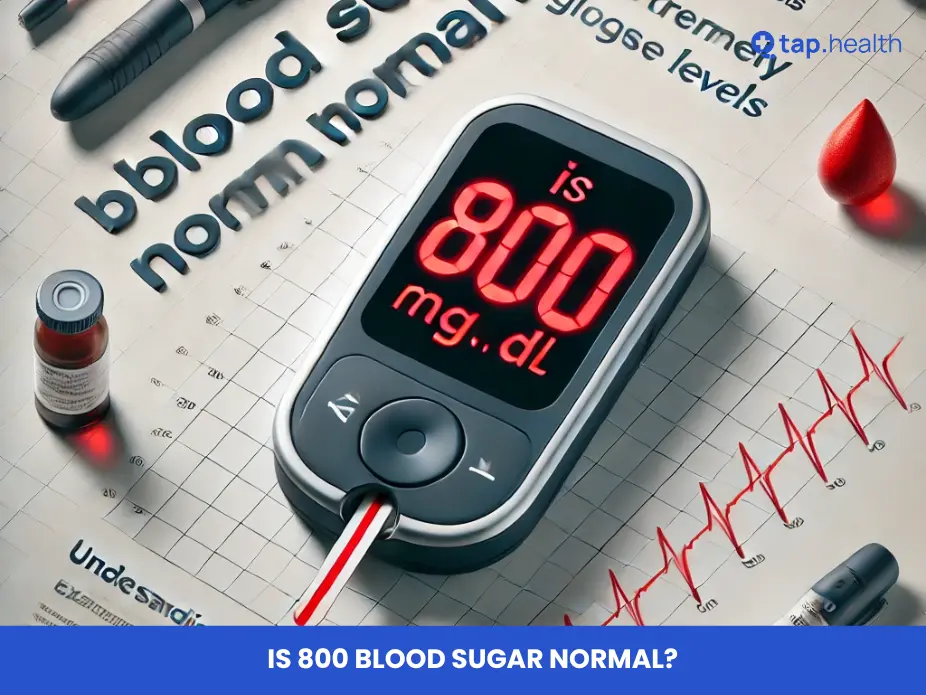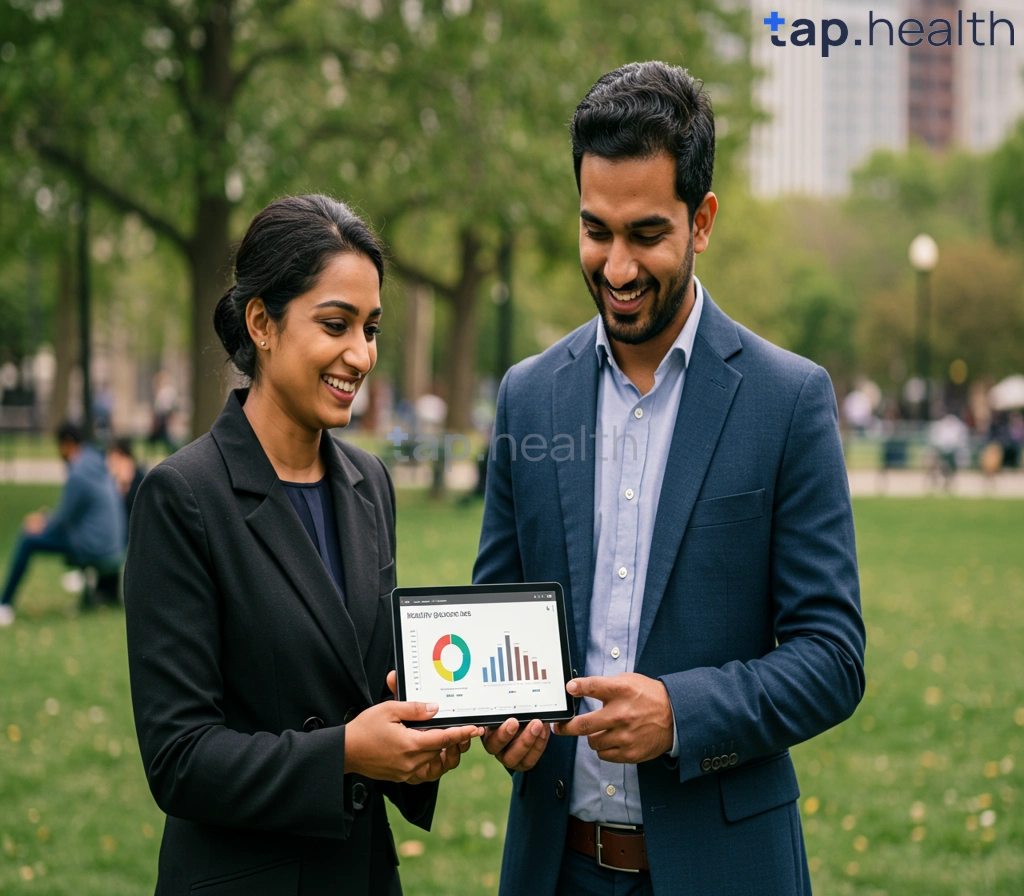Managing blood sugar levels is essential for maintaining good health, especially for individuals with diabetes. But what does an “800 blood sugar” level mean? Is it normal? In this comprehensive guide, we’ll explore everything you need to know about blood sugar levels, with a special focus on the implications of an 800 mg/dL reading. Whether you’re new to this topic or seeking a deeper understanding, this blog will break down the information using simple language and clear explanations.
What is Blood Sugar?
Blood sugar, also known as blood glucose, is the amount of glucose present in your blood. Glucose is a vital source of energy for your body’s cells, fueling everything from your muscles to your brain. After you eat, your body breaks down carbohydrates into glucose, which enters your bloodstream. Insulin, a hormone produced by the pancreas, helps regulate blood sugar by facilitating the entry of glucose into your cells.
Maintaining balanced blood sugar levels is crucial. Too low (hypoglycemia) or too high (hyperglycemia) blood sugar levels can lead to serious health issues.
Understanding Blood Sugar Levels
Blood sugar levels are measured in milligrams per deciliter (mg/dL) using a blood glucose meter. Understanding these levels helps in diagnosing and managing conditions like diabetes.
Normal Blood Sugar Ranges
- Fasting Blood Sugar (measured after at least 8 hours without food):
- Normal: 70-99 mg/dL
- Prediabetes: 100-125 mg/dL
- Diabetes: 126 mg/dL or higher
- Postprandial Blood Sugar (measured 2 hours after eating):
- Normal: Less than 140 mg/dL
- Prediabetes/Diabetes: 140 mg/dL or higher
Hemoglobin A1c
Another important measure is the Hemoglobin A1c (HbA1c), which reflects your average blood sugar levels over the past 2-3 months. An HbA1c below 5.7% is considered normal, 5.7%-6.4% indicates prediabetes, and 6.5% or higher suggests diabetes.
Is 800 Blood Sugar Normal?
An **800 mg/dL blood sugar level is not normal; it is extremely high and represents a medical emergency. Such elevated levels can lead to severe health complications and require immediate medical attention.
What Causes Blood Sugar to Reach 800 mg/dL?
Achieving a blood sugar level of 800 mg/dL is rare and typically associated with uncontrolled diabetes or other severe health conditions. Understanding the underlying causes is crucial for prevention and management.
Causes of Extremely High Blood Sugar (Hyperglycemia)
Several factors can cause blood sugar levels to soar to 800 mg/dL:
- Uncontrolled Diabetes:
- Type 1 Diabetes: The body does not produce insulin, leading to unchecked glucose levels.
- Type 2 Diabetes: The body becomes resistant to insulin, requiring higher amounts to manage glucose.
- Insufficient Insulin or Medication:
- Missing insulin doses or not taking diabetes medications as prescribed can cause blood sugar to spike.
- Infections or Illness:
- Infections can cause stress on the body, leading to increased production of glucose.
- Stress:
- Physical or emotional stress can trigger the release of hormones like cortisol, which raise blood sugar levels.
- Certain Medications:
- Steroids, diuretics, and some psychiatric medications can increase blood sugar.
- Poor Diet:
- Consuming excessive carbohydrates or sugary foods can overwhelm the body’s ability to manage glucose.
- Dehydration:
- Lack of adequate fluids can concentrate glucose in the blood, artificially raising blood sugar levels.
- Pancreatic Disorders:
- Conditions affecting the pancreas can impair insulin production.
Symptoms of Extremely High Blood Sugar
When blood sugar levels reach 800 mg/dL, the body experiences severe symptoms that indicate a medical crisis:
- Extreme Thirst: Persistent and intense thirst, even after drinking fluids.
- Frequent Urination: Needing to urinate more often than usual, especially at night.
- Fatigue: Unusual tiredness or weakness, as cells are deprived of glucose.
- Blurred Vision: Difficulty seeing clearly due to fluid changes in the eyes.
- Nausea and Vomiting: Feeling sick to the stomach, which can lead to dehydration.
- Confusion: Difficulty thinking clearly, which can escalate to disorientation.
- Shortness of Breath: Trouble breathing normally, often due to dehydration and electrolyte imbalances.
- Loss of Consciousness: In extreme cases, extremely high blood sugar can lead to coma.
If you or someone you know experiences these symptoms, especially with blood sugar readings around 800 mg/dL, seek emergency medical help immediately.
Health Risks Associated with Extremely High Blood Sugar
Persistently high blood sugar levels can lead to numerous short-term and long-term health complications:
Short-Term Risks
- Diabetic Ketoacidosis (DKA):
- Primarily seen in Type 1 diabetes, DKA occurs when the body starts breaking down fats for energy, producing ketones, which can lead to acidic blood conditions.
- Hyperosmolar Hyperglycemic State (HHS):
- More common in Type 2 diabetes, HHS involves extremely high blood sugar without significant ketones, leading to severe dehydration and potential organ failure.
- Dehydration:
- Excessive urination caused by high blood sugar levels leads to significant fluid loss.
- Electrolyte Imbalance:
- Loss of essential minerals like potassium and sodium can disrupt body functions.
Long-Term Risks
- Heart Disease and Stroke:
- High blood sugar damages blood vessels and nerves that control the heart, increasing the risk of cardiovascular diseases.
- Nerve Damage (Neuropathy):
- Excess glucose can injure nerves throughout the body, leading to pain, tingling, or loss of sensation, especially in the extremities.
- Kidney Damage (Nephropathy):
- High blood sugar can damage the kidneys’ filtering system, potentially leading to kidney failure.
- Eye Damage (Retinopathy):
- Elevated glucose levels can damage the blood vessels in the retina, causing vision problems and even blindness.
- Foot Problems:
- Nerve damage and poor circulation increase the risk of foot ulcers and infections, which can lead to amputations if untreated.
- Skin Conditions:
- High blood sugar can make the skin more susceptible to infections and other skin disorders.
- Hearing Impairment:
- There is a higher risk of hearing problems among individuals with diabetes.
- Alzheimer’s Disease:
- Emerging research suggests a link between diabetes and an increased risk of Alzheimer’s disease and other forms of dementia.
Managing and Lowering Blood Sugar Levels
Managing blood sugar levels effectively involves both immediate actions during a crisis and long-term strategies to maintain balance.
Immediate Actions for Extremely High Blood Sugar
If blood sugar levels reach 800 mg/dL, immediate steps are necessary to reduce the levels safely:
- Hydrate:
- Drinking plenty of water helps dilute the glucose in the blood and aids the kidneys in removing excess sugar through urine.
- Administer Insulin:
- For individuals with diabetes, taking prescribed insulin can help lower blood sugar levels. This may involve multiple injections or an insulin pump.
- Monitor Blood Sugar:
- Regularly checking blood sugar levels helps track progress and determine the effectiveness of interventions.
- Seek Emergency Medical Care:
- Extremely high blood sugar levels require professional medical treatment to prevent complications like DKA or HHS.
Long-Term Management Strategies
- Healthy Diet:
- Balanced Meals: Incorporate a mix of carbohydrates, proteins, and healthy fats.
- Low Glycemic Index Foods: Choose foods that have a minimal impact on blood sugar levels.
- Portion Control: Monitor portion sizes to avoid overeating.
- Regular Exercise:
- Aerobic Activities: Such as walking, jogging, or swimming, help the body use insulin more efficiently.
- Strength Training: Builds muscle mass, which can improve insulin sensitivity.
- Medication Adherence:
- Take prescribed diabetes medications or insulin as directed by healthcare providers.
- Regular Monitoring:
- Keep track of blood sugar levels daily to identify patterns and make necessary adjustments.
- Stress Management:
- Practice relaxation techniques like meditation, yoga, or deep breathing to reduce stress-induced blood sugar spikes.
- Healthy Weight Maintenance:
- Achieving and maintaining a healthy weight can improve insulin sensitivity and blood sugar control.
- Avoid Smoking and Limit Alcohol:
- Smoking and excessive alcohol consumption can exacerbate blood sugar control issues and increase the risk of complications.
- Educate Yourself:
- Understanding diabetes and its management empowers you to make informed health decisions.
When to Seek Medical Help
An 800 mg/dL blood sugar level is a medical emergency. Immediate medical intervention is crucial to prevent life-threatening complications. Seek professional help if you experience:
- Severe Thirst and Dry Mouth: Persistent thirst despite drinking fluids.
- Frequent Urination: Needing to urinate more often than usual, especially at night.
- Confusion or Disorientation: Difficulty thinking clearly or making decisions.
- Shortness of Breath: Trouble breathing normally.
- Unconsciousness: Losing consciousness is a sign of a severe crisis.
- Nausea and Vomiting: Persistent vomiting can lead to dehydration.
- Rapid Heart Rate: An unusually fast heartbeat can indicate distress.
Do not delay seeking medical help if you or someone else is experiencing these symptoms. Prompt treatment can stabilize blood sugar levels and prevent serious health issues.
Prevention Tips for Maintaining Healthy Blood Sugar Levels
Preventing extremely high blood sugar involves consistent management and healthy lifestyle choices. Here are practical tips to help you maintain balanced blood sugar levels:
- Balanced Diet:
- Regular Meals: Eat meals at consistent times to help regulate blood sugar.
- Carbohydrate Counting: Monitor carbohydrate intake to manage blood sugar spikes.
- Fiber-Rich Foods: Incorporate vegetables, fruits, and whole grains to slow glucose absorption.
- Regular Physical Activity:
- Consistency: Engage in physical activity regularly to help your body use insulin effectively.
- Variety: Combine aerobic exercises with strength training for optimal benefits.
- Monitor Blood Sugar:
- Daily Checks: Regularly check your blood sugar levels to identify trends and make necessary adjustments.
- Use Technology: Consider using continuous glucose monitors (CGMs) for real-time tracking.
- Stay Hydrated:
- Water Intake: Drink plenty of water to help your kidneys remove excess glucose.
- Limit Sugary Drinks: Avoid beverages that can cause rapid spikes in blood sugar.
- Avoid Excess Sugar:
- Limit Sweets: Reduce intake of sugary snacks, desserts, and beverages.
- Read Labels: Check food labels for hidden sugars and carbohydrates.
- Manage Stress:
- Relaxation Techniques: Practice meditation, yoga, or deep breathing to reduce stress-induced blood sugar spikes.
- Healthy Hobbies: Engage in activities you enjoy to keep stress levels in check.
- Regular Medical Check-Ups:
- Routine Exams: Visit your healthcare provider regularly to monitor your condition and adjust treatment plans as needed.
- Eye and Foot Exams: Regular screenings can detect complications early.
- Medication Management:
- Adherence: Take medications as prescribed without skipping doses.
- Consultation: Talk to your doctor before making any changes to your medication regimen.
- Healthy Weight Maintenance:
- Weight Loss: Even a small amount of weight loss can improve blood sugar control.
- Balanced Diet and Exercise: Combine dietary changes with physical activity for effective weight management.
- Education and Support:
- Learn About Diabetes: Understanding your condition helps you make informed decisions.
- Support Groups: Join groups or communities for support and shared experiences.
Frequently Asked Questions (FAQs) on Is 800 Blood Sugar Normal?
1. Can blood sugar levels reach 800 mg/dL without diabetes?
While extremely high blood sugar levels are most commonly associated with diabetes, certain medical conditions affecting the pancreas or hormone-producing glands can also lead to elevated glucose levels. However, reaching 800 mg/dL without diabetes is rare and typically indicative of a serious health issue.
2. What should I do if my blood sugar reaches 800 mg/dL?
If your blood sugar reaches 800 mg/dL, seek immediate medical attention. This is a medical emergency that requires prompt intervention to prevent life-threatening complications.
3. Can diet alone bring down blood sugar from 800 mg/dL?
No, an extremely high blood sugar level like 800 mg/dL cannot be safely managed by diet alone. Immediate medical treatment, often involving insulin therapy and intravenous fluids, is necessary.
4. Is an 800 mg/dL blood sugar level reversible?
With prompt medical treatment, it is possible to bring blood sugar levels back to a safe range. However, the underlying causes must be addressed to prevent recurrence.
5. What long-term complications can arise from an 800 mg/dL blood sugar level?
Long-term complications depend on how quickly and effectively the high blood sugar is managed. Potential risks include diabetic ketoacidosis (DKA), hyperosmolar hyperglycemic state (HHS), organ damage, and increased risk of cardiovascular diseases.
6. Can children experience blood sugar levels as high as 800 mg/dL?
Yes, children with Type 1 diabetes can experience extremely high blood sugar levels if their condition is not managed properly. It is crucial to monitor and manage their blood sugar levels carefully to prevent such dangerous spikes.
7. How often should I monitor my blood sugar to prevent reaching 800 mg/dL?
Monitoring frequency varies based on individual health conditions. However, for those at risk, checking blood sugar multiple times a day as recommended by a healthcare provider can help prevent extreme levels.
An 800 mg/dL blood sugar level is far above the normal range and signifies a critical health situation that requires immediate medical attention. Understanding the causes, symptoms, and risks associated with such high blood sugar levels is vital for effective management and prevention. Maintaining healthy blood sugar levels involves a combination of a balanced diet, regular exercise, medication adherence, and consistent monitoring. Always consult with healthcare professionals for personalized advice and treatment plans to ensure your blood sugar remains within a safe and healthy range.
Remember: Managing blood sugar is a lifelong commitment, but with the right strategies and support, you can lead a healthy and active life.
References
- American Diabetes Association
- Mayo Clinic on Hyperglycemia
- Centers for Disease Control and Prevention (CDC) – Diabetes
- National Institute of Diabetes and Digestive and Kidney Diseases (NIDDK)
- Harvard Health Publishing – Understanding Diabetes
- National Diabetes Education Program
Disclaimer: This blog post is intended for informational purposes only and does not constitute medical advice. Always consult with a healthcare professional for medical advice and treatment.




